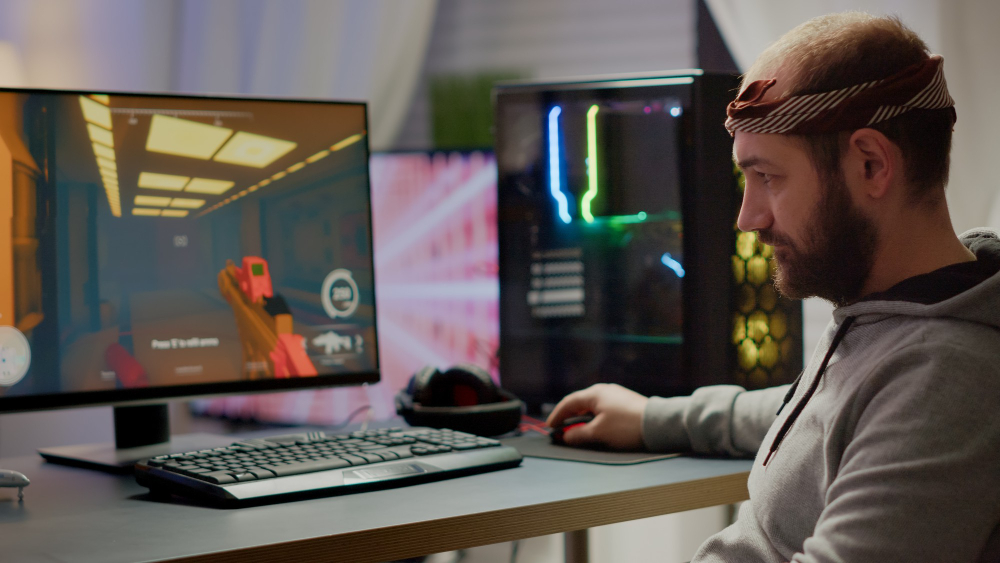Gaming on a PC offers unparalleled graphics, performance, and customization options, but to truly unlock its full potential, you need to optimize your setup for gaming. From hardware upgrades to software tweaks, here’s everything you need to know to transform your PC into the ultimate gaming machine and take your gaming experience to the next level.
Powering Up Your Rig
The first step in optimizing your PC for gaming is to ensure you have the right hardware to handle the demands of modern games. Invest in a powerful graphics card, processor, and ample RAM to ensure smooth gameplay and high frame rates. SSD storage can also significantly improve load times and reduce in-game stuttering. Additionally, consider upgrading your monitor to a high-refresh-rate display with low input lag for a more responsive and immersive gaming experience.
Keeping Your System Chill
As gaming puts a strain on your PC’s components, proper cooling is essential to prevent overheating and performance throttling. Invest in a quality CPU cooler and case fans to maintain optimal temperatures during intense gaming sessions. Consider upgrading to liquid cooling for even better thermal performance and quieter operation. Proper cable management and airflow optimization can also help improve cooling efficiency and prolong the lifespan of your components.
Finding the Sweet Spot
Optimizing in-game graphics settings is crucial for balancing visual fidelity and performance. Experiment with different settings, such as resolution, texture quality, anti-aliasing, and shadow detail, to find the right balance between visual appeal and smooth gameplay. Consider using tools like NVIDIA’s GeForce Experience or AMD’s Radeon Software to automatically optimize settings based on your hardware configuration. Adjusting settings on a per-game basis can help ensure optimal performance without sacrificing visual quality.
Staying Up to Date
Regularly updating your graphics card drivers is essential for ensuring compatibility with the latest games and optimizing performance. Check for driver updates from your graphics card manufacturer’s website or use automatic update utilities to keep your drivers current. New driver releases often include performance optimizations, bug fixes, and support for new features that can enhance your gaming experience.
Pushing the Limits
For experienced users, overclocking your CPU and GPU can provide a significant performance boost in gaming. However, overclocking carries risks, including increased heat generation and potential hardware damage if not done correctly. Take the time to research safe overclocking methods and use reliable overclocking software to gradually increase clock speeds and voltage while monitoring temperatures and stability. Remember to proceed with caution and only overclock within the limits of your hardware.
Streamlining Performance
Several software tools are available to help optimize your PC for gaming by managing system resources and prioritizing game performance. Game optimization utilities like Razer Cortex, MSI Afterburner, and Game Mode in Windows 10 can help boost frame rates, reduce input lag, and minimize background processes to maximize gaming performance. Experiment with different tools to find the ones that work best for your system and gaming preferences.
Minimizing Lag and Latency
A stable and fast internet connection is essential for online gaming, so optimizing your network settings can help reduce lag and latency during gameplay. Use wired Ethernet connections whenever possible for lower latency and more consistent speeds compared to Wi-Fi. Consider upgrading to a high-speed internet plan with low ping and jitter for smoother online gaming experiences. Additionally, prioritize gaming traffic on your router and use Quality of Service (QoS) settings to minimize network congestion and prioritize gaming packets.
Keeping Your System Running Smoothly
Regular maintenance and care are crucial for keeping your gaming PC running smoothly and performing at its best. Keep your system clean and dust-free by regularly dusting components and cleaning air filters. Update your operating system, drivers, and software regularly to ensure optimal compatibility and performance. Consider installing antivirus software and performing regular system scans to detect and remove malware that could degrade performance or compromise security.
Leveling Up Your Gaming Experience
Optimizing your PC for gaming is an ongoing process that requires careful attention to hardware, software, and network settings. By investing in the right hardware upgrades, fine-tuning graphics settings, staying up to date with driver updates, and implementing optimization tools, you can transform your PC into a gaming powerhouse capable of delivering smooth, immersive, and lag-free gaming experiences. With the right tweaks and adjustments, you’ll be ready to conquer any virtual world and dominate the competition in your favorite games.
